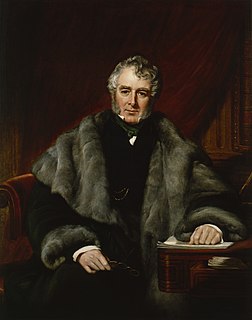A Quote by Seneca the Younger
Why will no man confess his faults? Because he continues to indulge in them; a man cannot tell his dream till he wakes.
Related Quotes
Wrongs are often forgiven, but contempt never is. Our pride remembers it forever. It implies a discovery of weakness, which we are more careful to conceal than a crime. Many a man will confess his crimes to a friend; but I never knew a man that would tell his silly weaknesses to his most intimate one.
No man, however enslaved to his appetites, or hurried by his passions, can, while he preserves his intellects unimpaired, please himself with promoting the corruption of others. He whose merit has enlarged his influence would surely wish to exert it for the benefit of mankind. Yet such will be the effect of his reputation, while he suffers himself to indulge in any favourite fault, that they who have no hope to reach his excellence will catch at his failings, and his virtues will be cited to justify the copiers of his vices.
Why prove to a man he is wrong? Is that going to make him like you? Why not let him save face? He didn't ask for your opinion. He didn't want it. Why argue with him? You can't win an argument, because if you lose, you lose it; and if you win it, you lose it. Why? You will feel fine. But what about him? You have made him feel inferior, you hurt his pride, insult his intelligence, his judgment, and his self-respect, and he'll resent your triumph. That will make him strike back, but it will never make him want to change his mind. A man convinced against his will is of the same opinion still.
A true warrior does not fight because he wishes to but because he has to. A man who yearns for war, a man who enjoys his killing, he is a brute and a monster. No matter how much glory he wins on the battlefield, that cannot erase the fact that he is no better than a rabid wolf who will turn on his friends and family as soon as his foes.
By His gracious condescension God became man and is called man for the sake of man and by exchanging His condition for ours revealed the power that elevates man to God through his love for God and brings God down to man because of His love for man. By this blessed inversion, man is made God by divinization and God is made man by hominization. For the Word of God and God wills always and in all things to accomplish the mystery of His embodiment.
A fundamental mistake to call vehemence and rigidity strength! A man is not strong who takes convulsion-fits; though six men cannot hold him then. He that can walk under the heaviest weight without staggering, he is the strong man . . . A man who cannot hold his peace, till the time come for speaking and acting, is no right man.
There are two men in each one of us: the scientist, he who starts with a clear field and desires to rise to the knowledge of Nature through observations, experimentation and reasoning, and the man of sentiment, the man of belief, the man who mourns his dead children, and who cannot, alas, prove that he will see them again, but who believes that he will, and lives in the hope – the man who will not die like a vibrio, but who feels that the force that is within him cannot die.







































